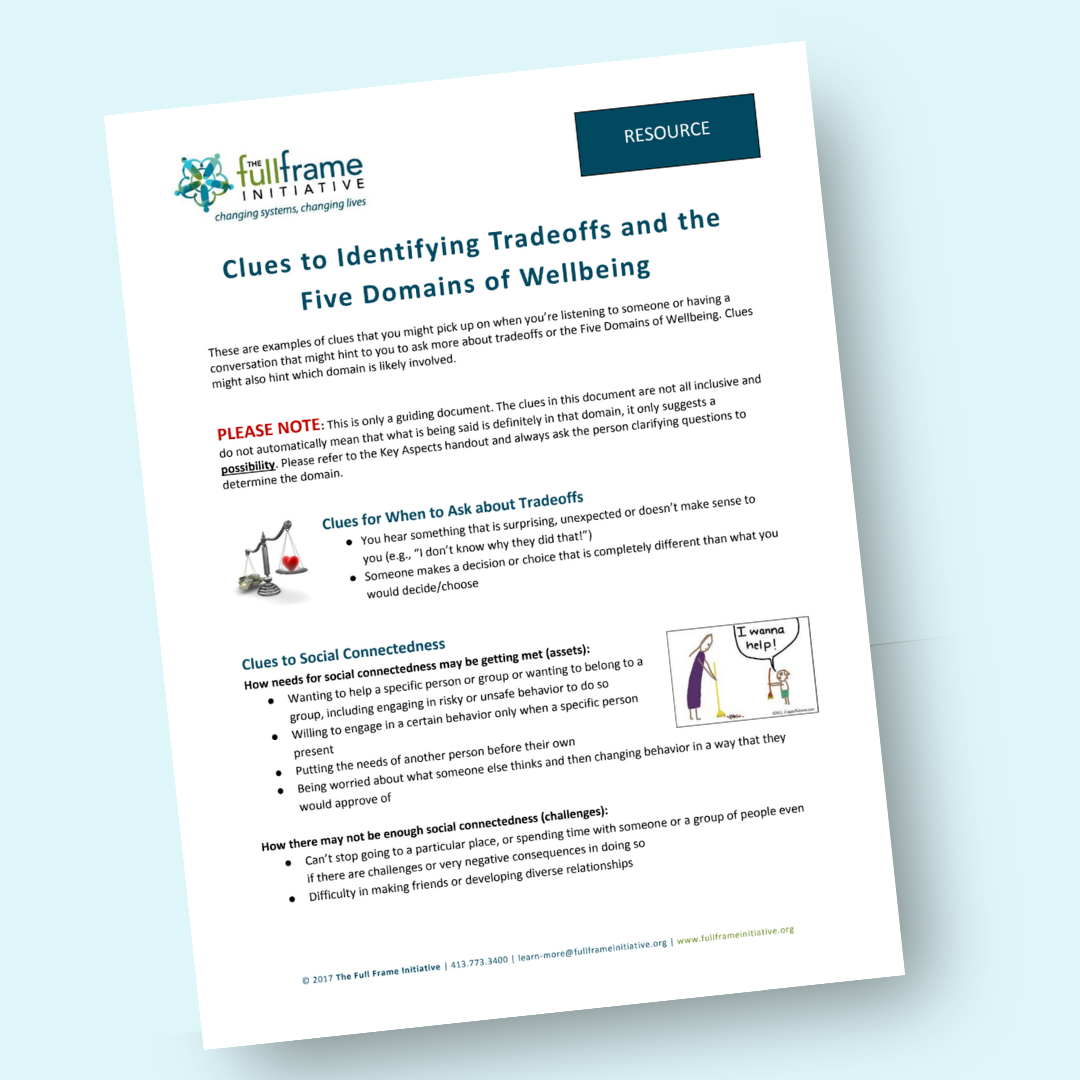
We are all hardwired for wellbeing and we can sometimes give "clues" in conversation that reference the Five Domains of Wellbeing and tradeoffs.
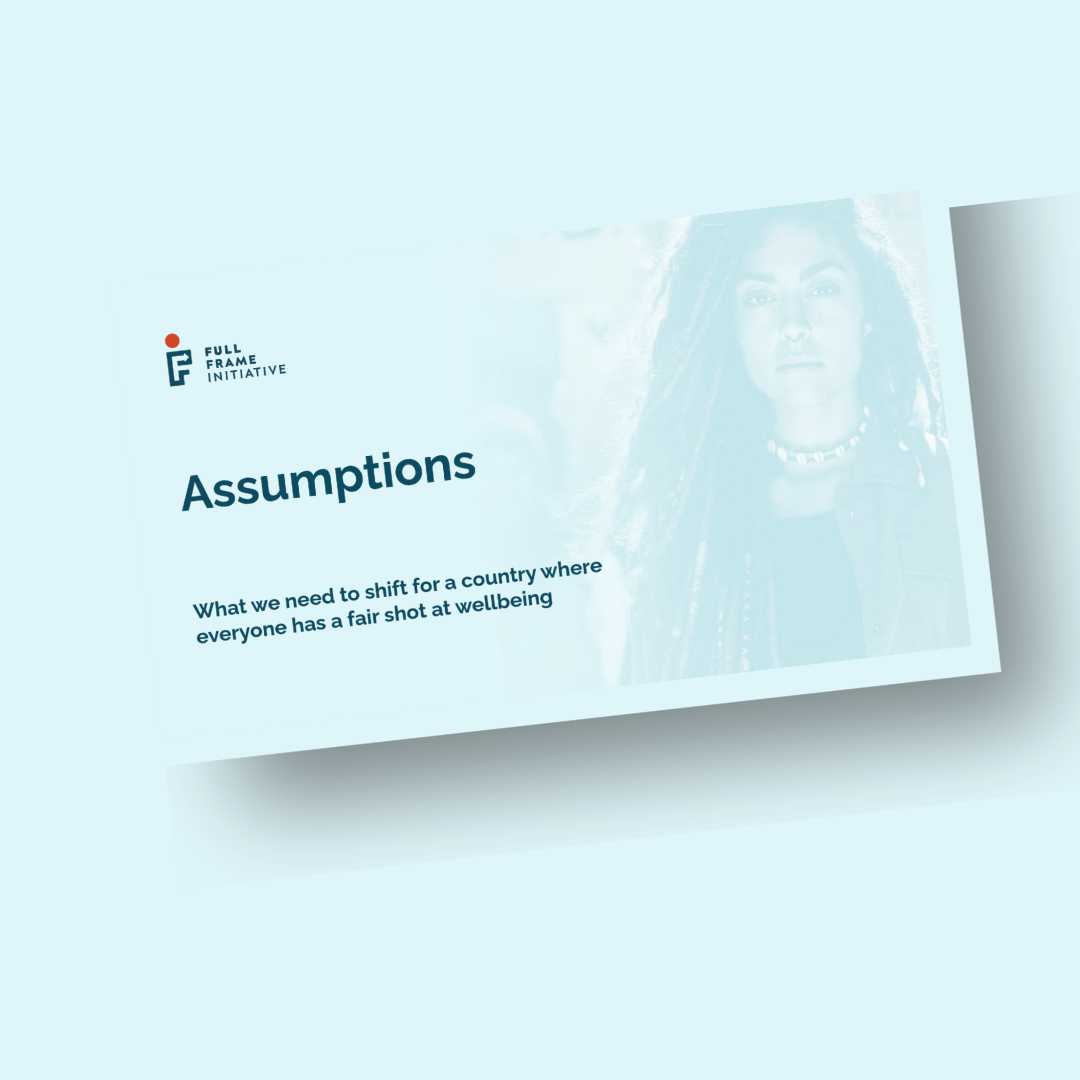
These slides look at assumptions that are currently built into our systems and offers a way to view assumptions from a wellbeing orientation instead.
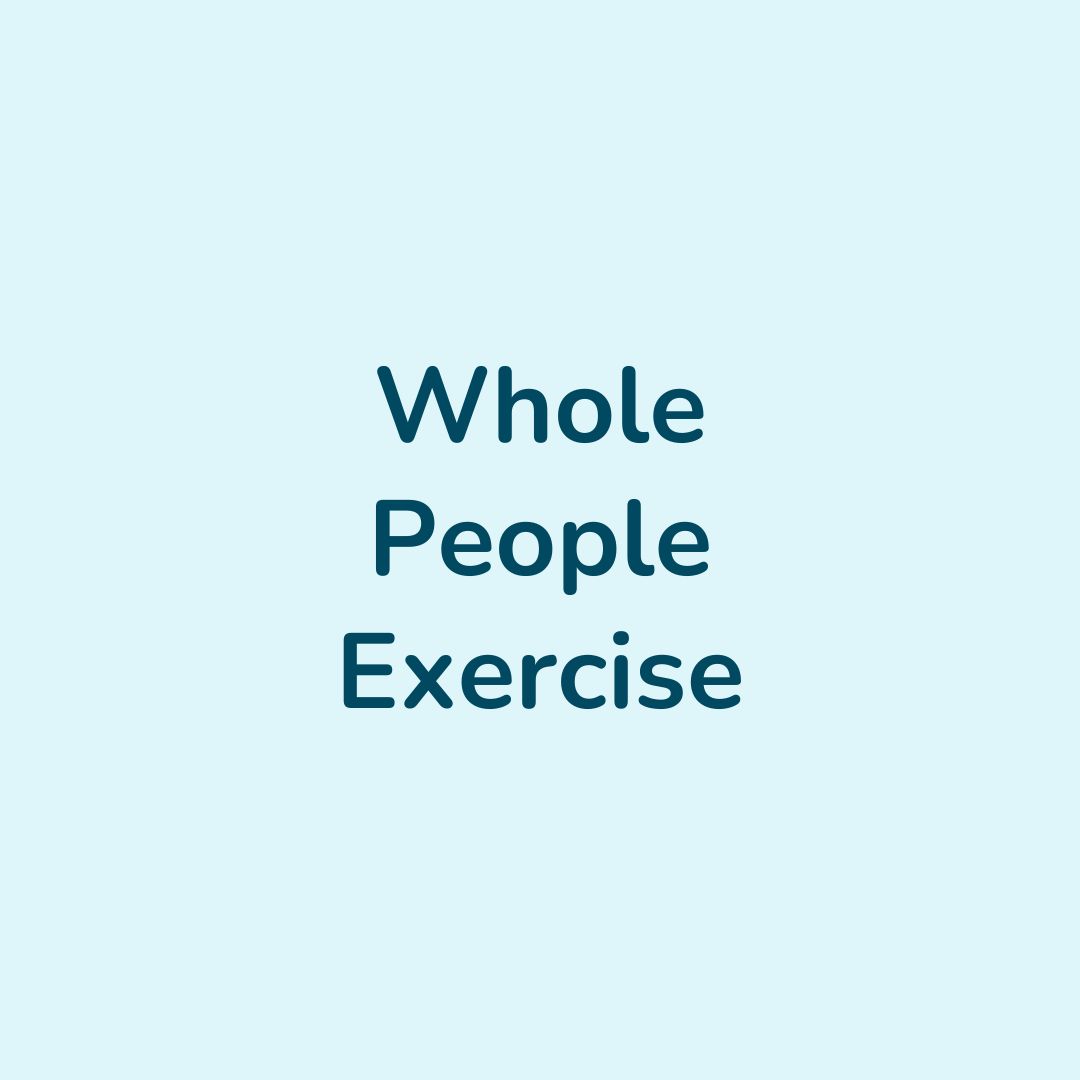
This exercise is part of the Wellbeing Bootcamp.
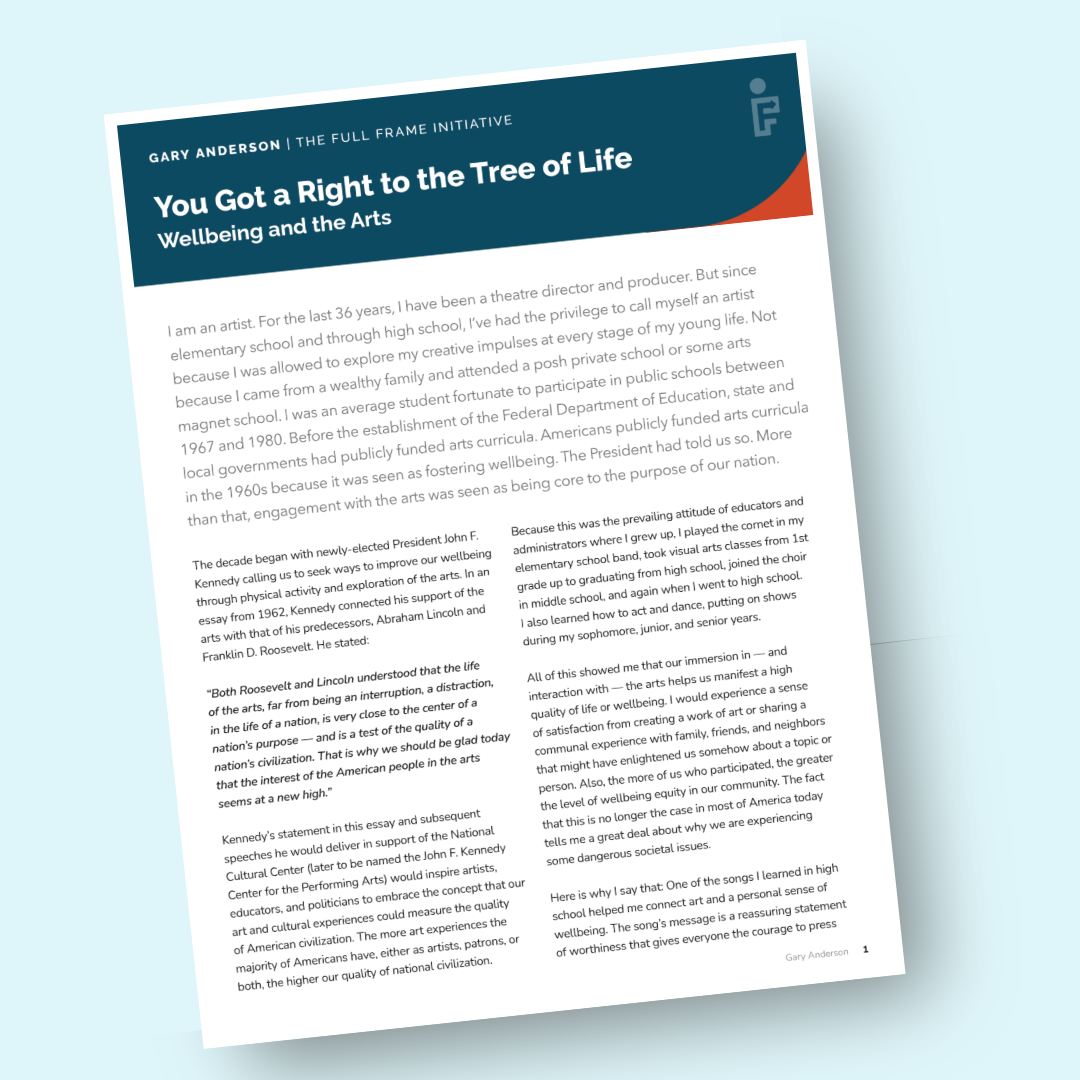
FFI Senior Fellow Gary Anderson, a theater director and producer with over 36 years of experience, makes a compelling case for centering the arts as a pathway to wellbeing and democracy.
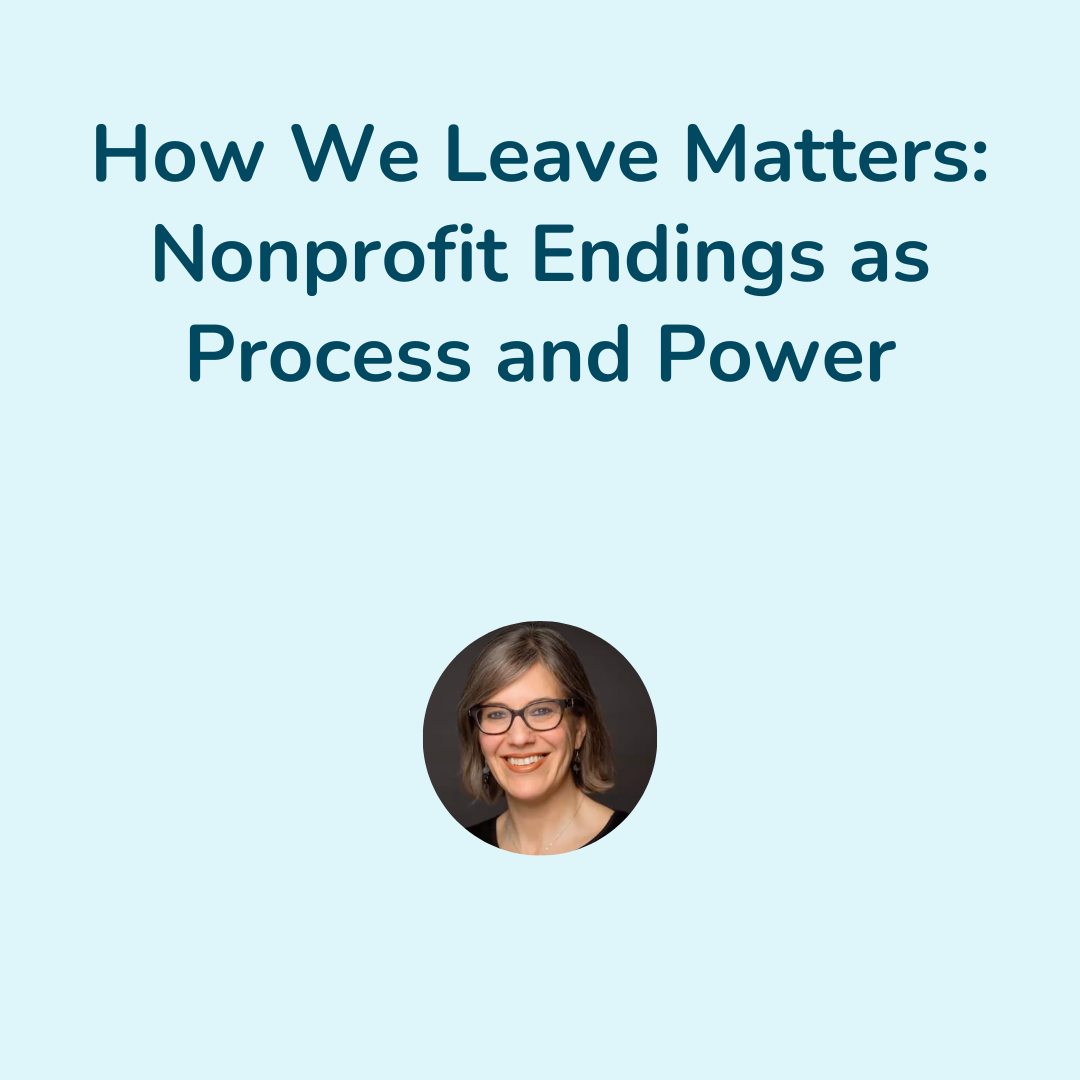
FFI Founder & CEO Katya Fels Smyth shared about our mission transition as part of the RX Foundation’s Power is a Social Determinant of Health series.
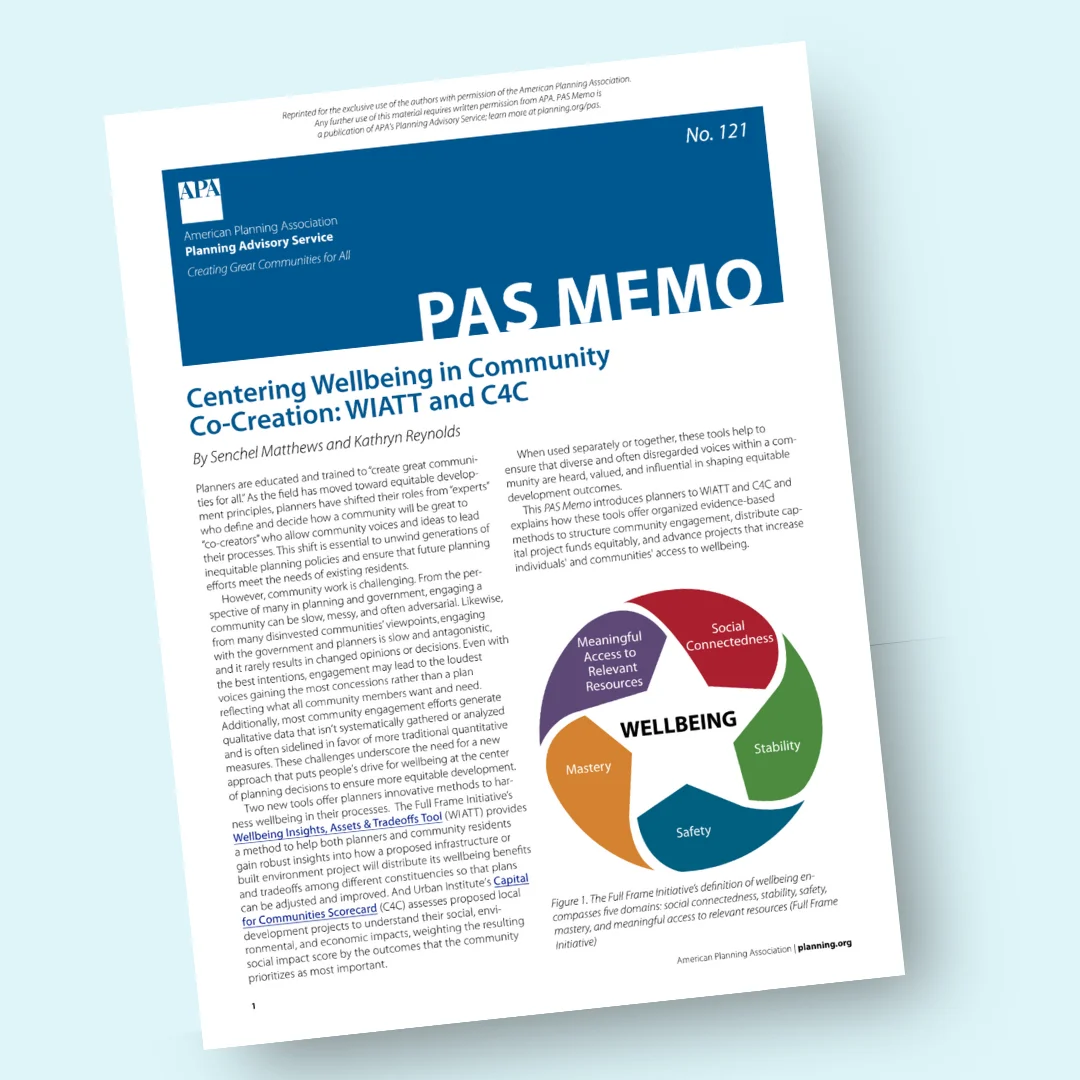
This memo was produced for the American Planning Association that provided insights on two tools to embed wellbeing equity and community co-creation in the planning field – FFI's Wellbeing Insights, Assets & Tradeoffs Tool (WIATT) and Urban Institute’s Capital for Communities Scorecard (C4C).

Mayor Michael Passero writes about the impact of the city of New London's partnership with FFI. Together, we're shifting how leaders and residents see their roles in building a city where everyone has a fair shot at wellbeing.
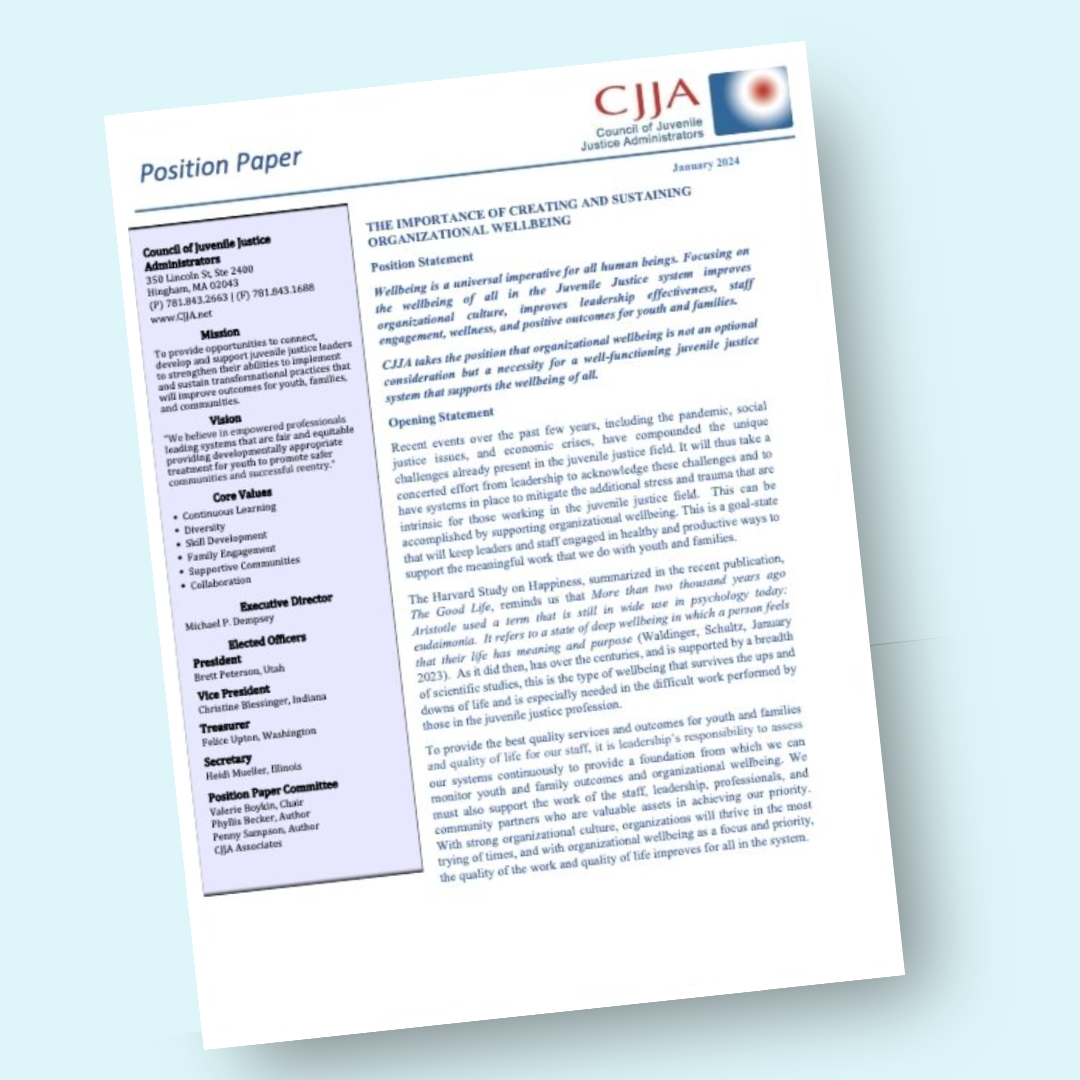
The Council for Juvenile Justice Administrators published a position paper with guidance on how to apply a wellbeing framework to juvenile justice.
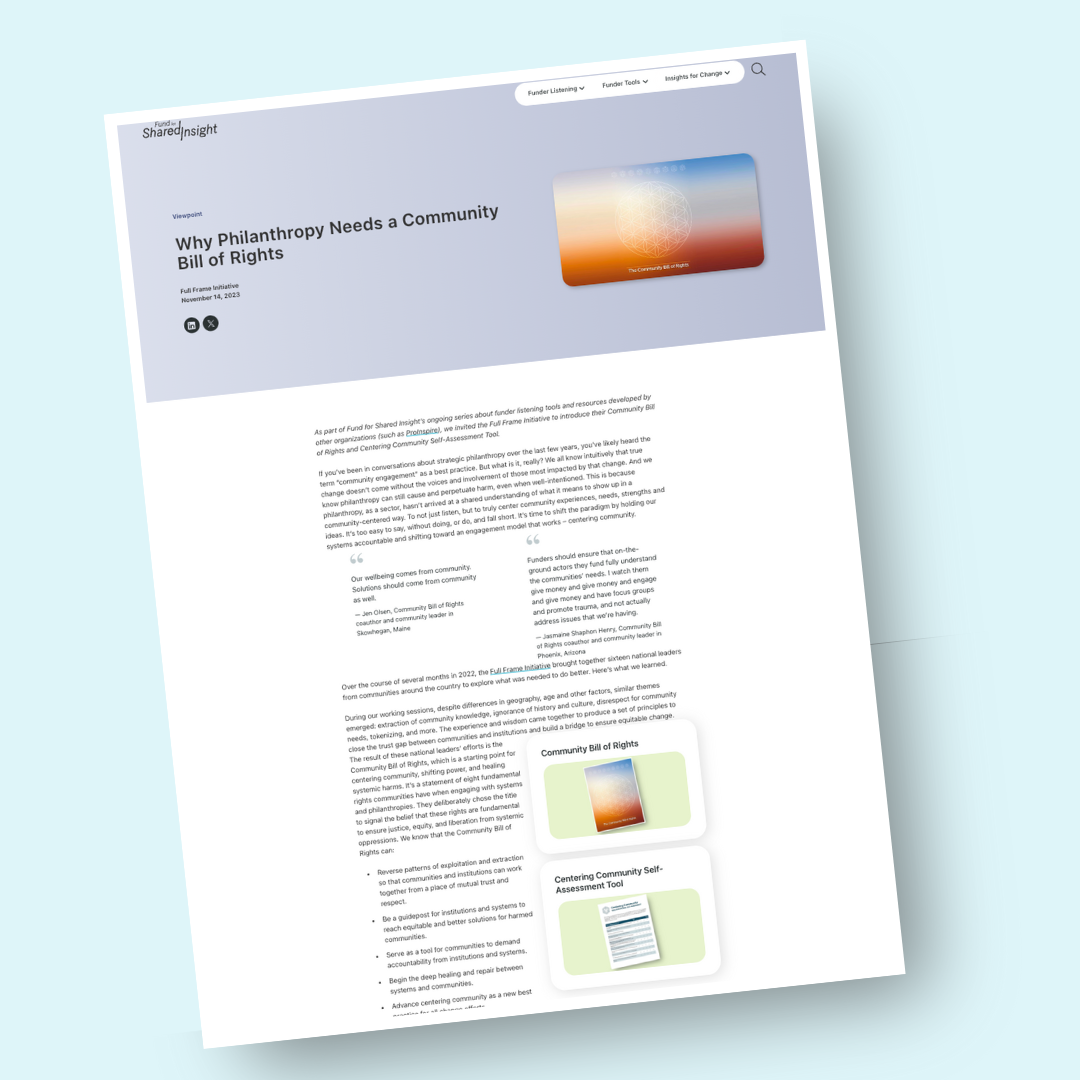
The Fund for Shared Insight invited the Full Frame Initiative to share the Community Bill of Rights and Centering Community Self-Assessment Tool as integral resources for philanthropic organizations.
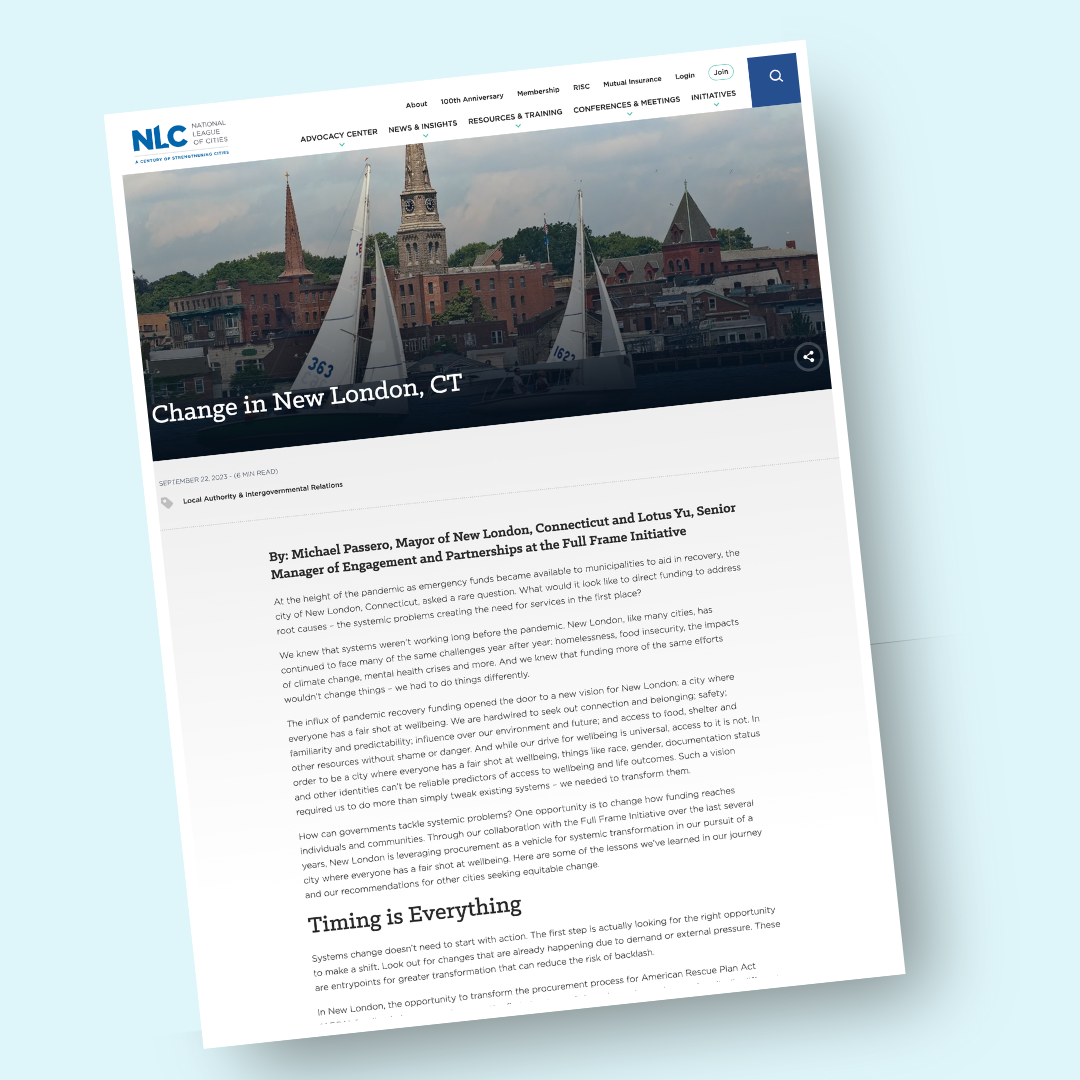
Michael Passero, Mayor of New London, Connecticut and Lotus Yu, Senior Manager of Engagement and Partnerships at the Full Frame Initiative share how the City of New London leveraged the government procurement process to distribute funds for transformative change that centers wellbeing and equity.
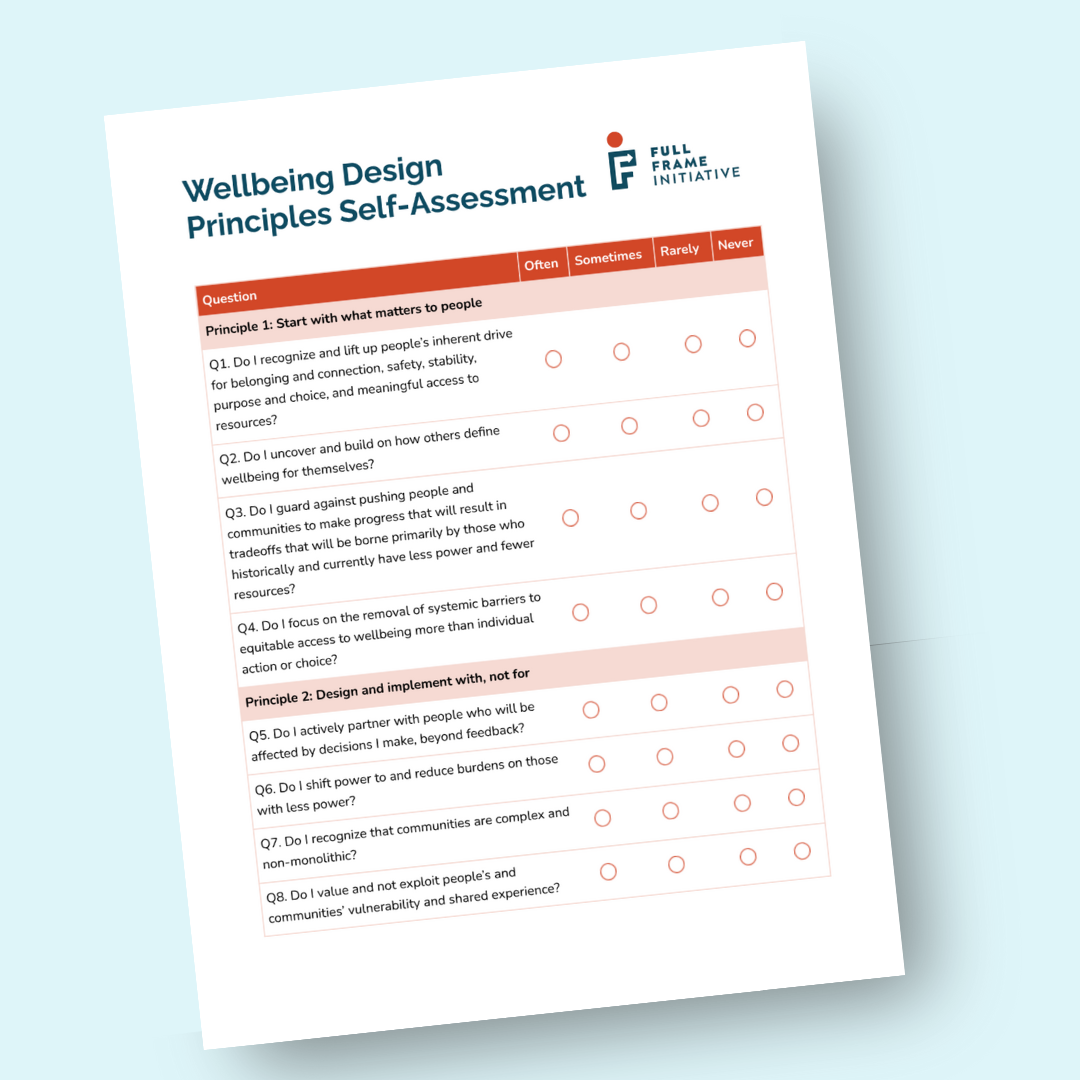
This assessment will help you gauge your efforts to create equitable access to wellbeing and uncover new opportunities to implement wellbeing design principles.
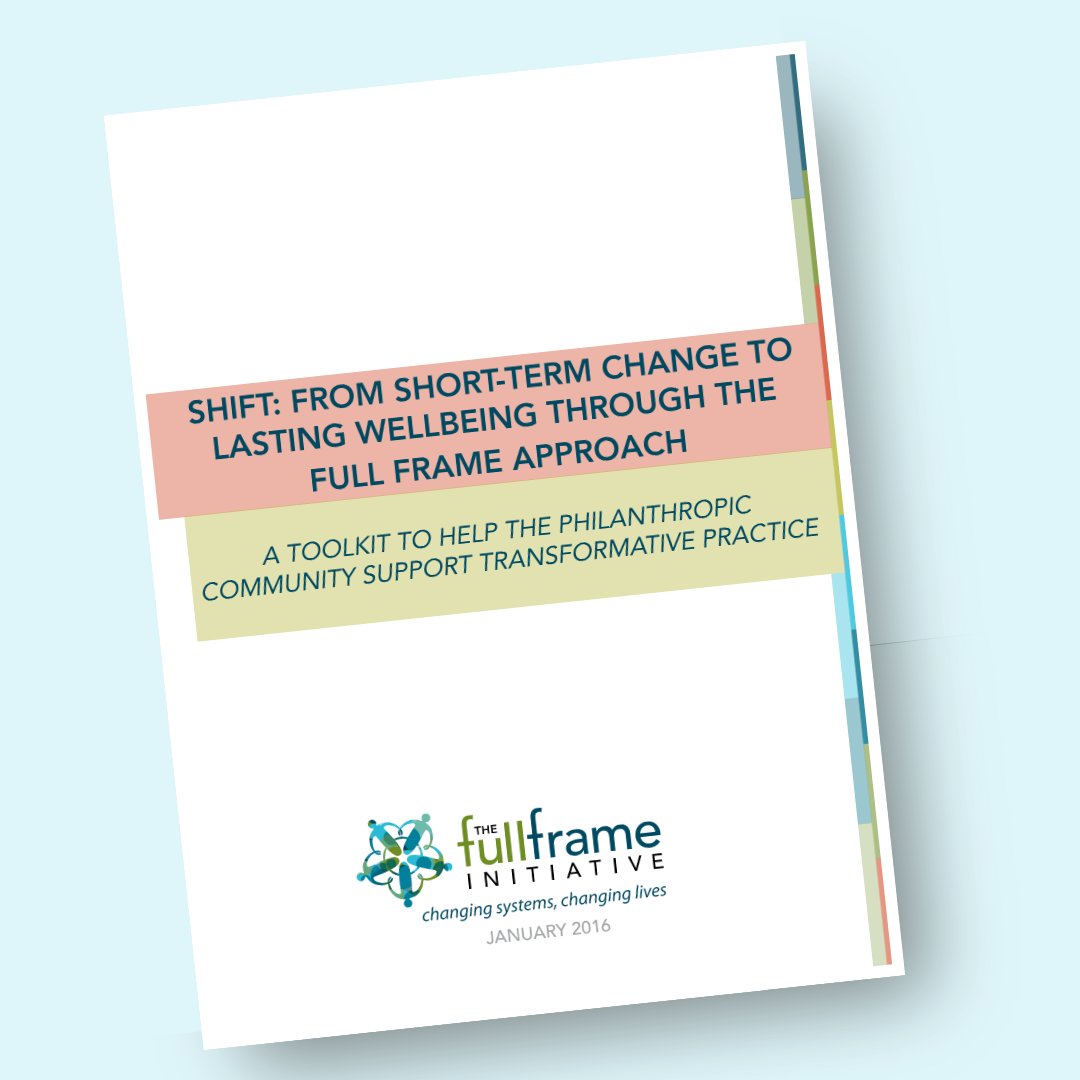
This toolkit provides guidance for the philanthropic community and other stakeholders interested in supporting long-term, sustainable change for people living at the intersection of poverty, violence, trauma and oppression.